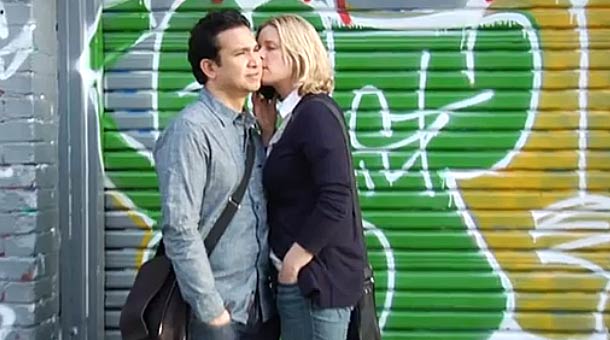
The film itself felt like it was a free flowing Jazz song.

The film itself felt like it was a free flowing Jazz song.
Let me start off by saying, Jazz really isn’t my thing. I have nothing against it in the slightest. I have actually enjoyed Jazz when I’ve listened to it. It’s just that, I’ve never really gotten into the genre. I wouldn’t even know where to start. I do however love the idea behind it. Most of the Jazz outfits I’ve come across have been a three piece. Usually a guy on drums, another on a bass (stand up or not) and a guy either on piano/trumpet or just singing.
But Jazz is something that I have an utmost respect for. I love how free flowing it is. I love that there is practically no rules to it. I love how three people can come together and play with each other and figure out each other’s rhythms. Jazz musicians have to have this true understanding with each other that artists in other genres have to work at. Jazz takes true synchronicity. That is something that I can truly admire.
All this brings us to the documentary Lucky Girl, about Jazz singer Jacqui Naylor. The film is about Jacqui and how she works with others in her band, the people who help her make her albums, her friends and more importantly her husband Art Khu. It’s interesting how the film works. The film itself is like a free flowing Jazz song. Never really resting and constantly shifting from one character to the next.
How Jacqui got involved with Jazz in the first place is one of those great life moments you hear about. She went to a summer camp for those looking at the arts. She wanted to act out Shakespeare but was told she had a lisp. Reading Shakespeare without a lisp I think is hard enough. But with one, forget about it. She tried doing comedy; guess what, she was told she wasn’t funny. One of her teachers told her she had could sing. She was sent to an older lady to work on her singing.

The lady who helped Jacqui hone her abilities is named Faith. She talks about her fascinating days decades ago when she started out singing in clubs all up and down the East coast, mainly Massachusetts. What she didn’t realize at the time was that all these night clubs were owned by the mob.
Next we meet her husband and writing partner. As I mentioned before his name is Art. Jacqui and Art have only been together for a few years but it seems to work really well. They have a real understanding of each other and get to create music and perform together every day. How many couples get to say that?
Jacqui’s approach to her music is simple and yet, it’s very refreshing. She takes pop songs that have been popular over the years, the one I recognized the most was REM’s “Losing My Religion”, and strips them down to slow Jazz songs. Another that I recognized was an old Jazz tune that Jacqui was singing, but it was AC/DC’s “Back in Black” that her band was playing. The music sounds great.
This essentially is what the documentary’s 75 minute runtime involves. People talking about her, their own lives and how they come together. I would’ve liked to have seen some more stuff that is only hinted at in the film. One of those is how Jacqui’s religion, Buddhism, influences her and her music.
Lucky Girl succeeds at having fantastic pacing. It’s never in a hurry to go anywhere and has a really laid back approach. Like I said earlier, the film itself felt like it was a free flowing Jazz song. For the film not really having much force to it, I really enjoyed how it moved throughout its story. It was never boring.
My only concern with the film is we really don’t get to know who Jacqui really is. The influence of her religion on her music, what makes her tick, what sets her off, her ideas, her aspirations. None of this is really explored and that’s unfortunate because the documentary is well made. Jacqui seems like she would be a fascinating person to sit down and talk with, I just wish the film would’ve taken more time to get to know some of these things.